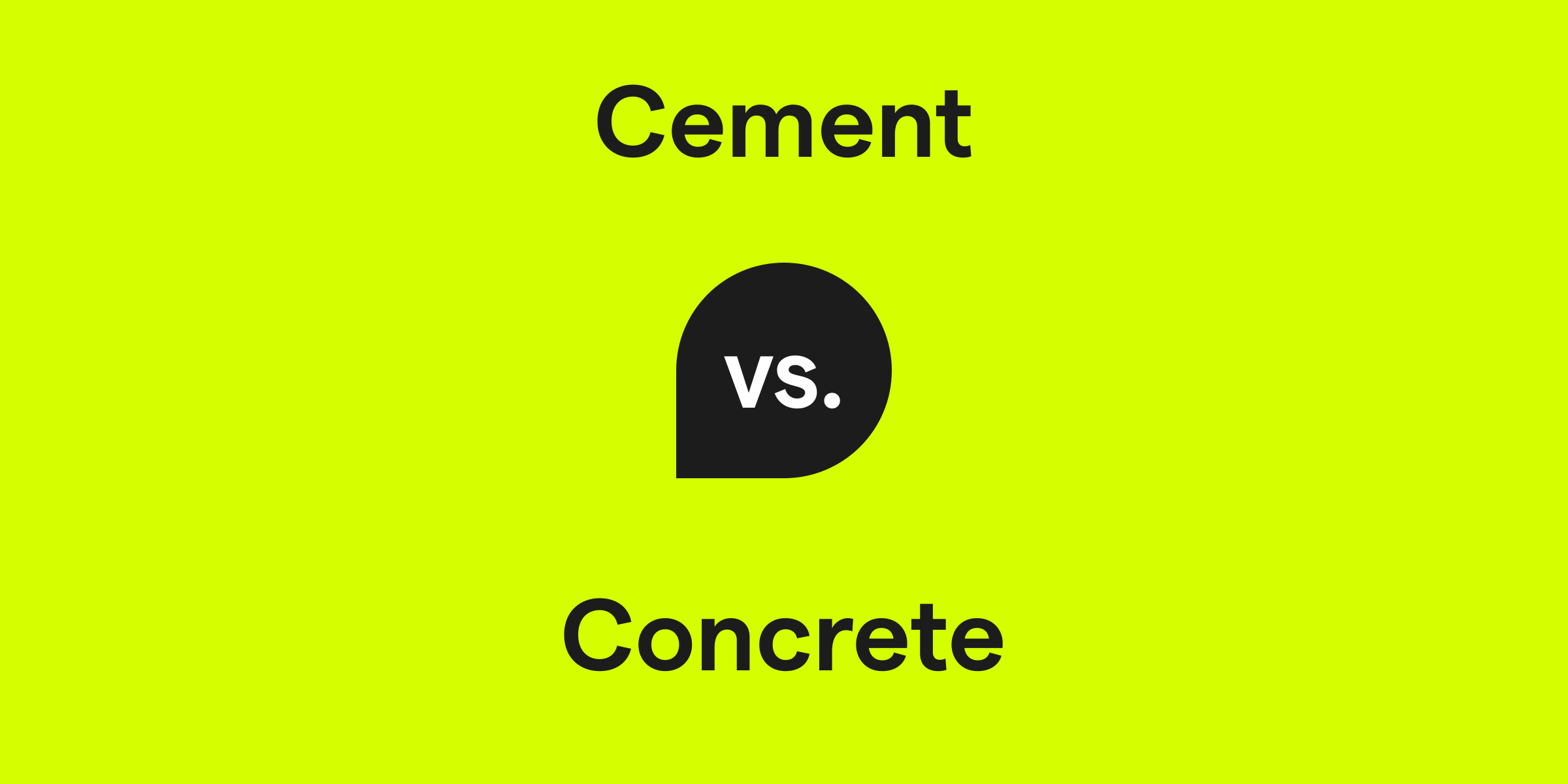Cement vs. Concrete: What's the Difference?
Cement and concrete are often erroneously used interchangeably, but they are distinctly different materials. Cement is a powdery substance made from calcined lime and clay that acts as a binding agent when mixed with water. Concrete, on the other hand, is a robust building material composed of cement, water, sand, and aggregates such as gravel or crushed stone.

How do you use the word cement in a sentence?
The word cement is commonly used to refer to the fine powder that, when mixed with water, forms a paste that hardens and is used as a binder in construction materials. It is a crucial component in making various forms of concrete and mortar, essential for construction projects. You might describe the role of cement in construction or discuss purchasing cement for a building job.
Examples of cement in a sentence
- The cement must be mixed with the right amount of water to achieve the desired consistency.
- After extensive research, the engineering team chose a high-grade cement for the foundation.
- You can find cement used in both residential construction and massive infrastructure projects.
How do you use the word concrete in a sentence?
In contrast, concrete is the term used for a hardened building material that results from the combination of cement, water, sand, and aggregates. It is praised for its durability and is a fundamental material for constructing buildings, bridges, and roads. When you speak of laying foundations or paving driveways, you're likely describing the use of concrete.
Examples of concrete in a sentence
- The concrete pathway leading to the house was lined with rose bushes.
- To withstand the earthquake, the structure was reinforced with steel bars embedded in the concrete.
- The contractors poured fresh concrete to form the building's new patio area.
Cement and concrete definitions, parts of speech, and pronunciation
Cement definition:
Cement is a noun that refers to a powdered substance made with calcined lime and clay that, when combined with water, creates a paste that hardens and is used to hold construction materials together.
Cement parts of speech:
Cement pronunciation:
The word 'cement' is pronounced as /ˈsɛm.ənt/.
Concrete definition:
Concrete, functioning primarily as a noun, is a building material made by mixing cement with water, sand, and aggregates like gravel or crushed stone to create a hard, stone-like mass.
Concrete parts of speech:
Concrete pronunciation:
The noun 'concrete' is pronounced as /ˈkɒn.kriːt/ while the adjective form is /kənˈkriːt/.
Cement is a noun that refers to a powdered substance made with calcined lime and clay that, when combined with water, creates a paste that hardens and is used to hold construction materials together.
Cement parts of speech:
- Noun: The bags of cement were stacked on the pallet for delivery.
- Verb: The deal will cement the partnership between the two companies for years to come.
Cement pronunciation:
The word 'cement' is pronounced as /ˈsɛm.ənt/.
Concrete definition:
Concrete, functioning primarily as a noun, is a building material made by mixing cement with water, sand, and aggregates like gravel or crushed stone to create a hard, stone-like mass.
Concrete parts of speech:
- Noun: The area was cordoned off until the concrete set and hardened properly.
- Adjective: The engineer demanded concrete evidence to support the planned changes.
Concrete pronunciation:
The noun 'concrete' is pronounced as /ˈkɒn.kriːt/ while the adjective form is /kənˈkriːt/.
Cement vs. concrete in a nutshell
Understanding the distinction between cement and concrete is pivotal for anyone involved in construction. While cement is the powdered substance used as a binder, concrete is the end product used in building, formed by mixing cement with water, sand, and course aggregates. Both are essential for modern construction, but their roles are clear: cement binds, and concrete builds. Remembering this simple difference ensures clarity in discussions regarding construction materials and processes.
Get AI Writing Assistance Wherever You Type
Make sure your vocabulary is on point and every punctuation mark is in the right place, no matter where you’re working. Grammarly works across more than 1 million websites and apps so you can improve your writing without copying, pasting, or breaking focus.

More Commonly Confused Words
Interest piqued? Pore (not pour) over other commonly confused words to help your writing reach peak (not peek) performance.